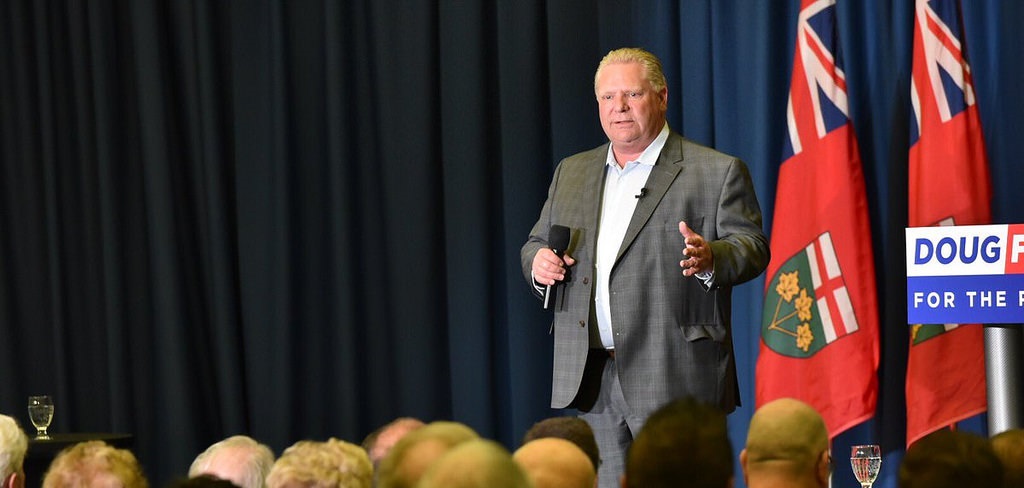Divisive Rhetoric and Language Used to Delegitimize and Dehumanize
Premier Doug Ford has embarked on a fear campaign against refugees, using divisive language to polarize the electorate’s views.
Attempts to demonize and delegitimize asylum seekers and refugees with terms like “illegal border crossers” is inappropriate and politically unsustainable. This is a highly derogatory way to refer to people whose lives have been upended in their homelands, and who come to Canada in search of security and a better life.
Reliance on such labels also implies rule-breaking or that refugees are somehow “sneaking” through Canada’s borders under false pretenses. This language is highly evident in how Ford has placed blame for the “mess” at the feet of the Federal Government.
Using such terminology has a dehumanizing impact on refugees seeking to escape a situation that already dehumanizes them. Ford’s unwillingness to accurately depict the legitimacy of making a refugee claim in Canada is a testament to how politics of fear can impact the public’s perception.
This approach also feeds into mistaken beliefs that immigrants and refugees bring an increase in crime rates with them. In fact, immigrants and refugees commit crimes at a lower rate than homegrown Canadians.
What’s more, they are also more likely to become entrepreneurs who help grow the economy. But Ford’s insistence on framing the refugee issue as a danger to our country means he and his party are betting that the Canadian public will ultimately retreat to a position of fear, division, and bigotry.
Earlier this year, Prime Minister Justin Trudeau met with the new Ontario premier and had much to say regarding the Canadian refugee file.
“It’s important as leaders in Canada to continue to protect one of the great advantages that Canada has over so many other countries — particularly at this time — that Canadians are generally very positively-inclined towards immigration,” Trudeau offered after he met Ford in July.
“People know that people coming here to build better lives for themselves actually contribute tremendously to our country and to our success, and this is something we’re going to continue to ensure — that our immigration and refugee system is applied responsibly.”
Both the United Nations and Amnesty International have encouraged Canadian politicians and media representatives to consider the negative ramifications of referring to refugees as “illegal”.
“There’s nothing illegal when you come and you cross an international border to claim asylum,” Jean-Nicolas Beuze, a representative from the UN High Commission on Refugees told Global News recently. Canada’s Immigration and Refugee Protection Act (IRPA) is “very clear” on that fact, Beuze says.
Share this article
Arghavan Gerami
Arghavan Gerami is the Founder and Senior Counsel at Gerami Law Professional Corporation ('PC'), a full-service immigration law firm in Ottawa, Ontario. Since 2011, Ms. Gerami has focused her practice on immigration and refugee litigation. Prior to that, Ms. Gerami worked at the Ministry of Attorney General and the Department of Justice and had the privilege of serving the Honourable Mr. Justice M. Evans at the Federal Court of Appeal on immigration and administrative law appeals. Ms. Gerami contributes to the Immigration Law Section of the Canadian Bar Association, the Canadian Association of Refugee Lawyers, and the United Nations High Commissioner for Refugees. Ms. Gerami has also published numerous journal articles and presented at various immigration and refugee law conferences and events across Canada.

